A healthy diet and nuturing practices are the foundation of a long life. Ancient Daoists searched for a way to prolonging the life span to the extend of immortality. Simply put, different practices allow us to build a long lasting vessel for the spirit to reside in while cultivating Dao. But there is more to it.
辟谷 Bi Gu – Refusing grain
The avoidance of grain shows the Daoist rejection of normal social practices. It is a return to a time in the dawn of mankind, when there were no crops. It’s also a return to a more primitive and simple way of eating.
Daoist Bi Gu practitioners found a way to end the agricultural base that the Chinese society relied on. The “cutting off” of grains as the staple food for farmers was also a rejection of their sedentary lifestyle and the peasant condition as such. This rejection should not be based solely on the peasants’ plight, but should be interpreted in a much deeper way. Since the Neolithic Age, agriculture has been the cause of a radical break in the way of life for almost all of prehistory. Agriculture has also been the main cause of imbalances in human civilization over the past ten thousand years. The systematic destruction of the natural environment, overpopulation, capitalization and other evils that lead to sedentary lifestyles.
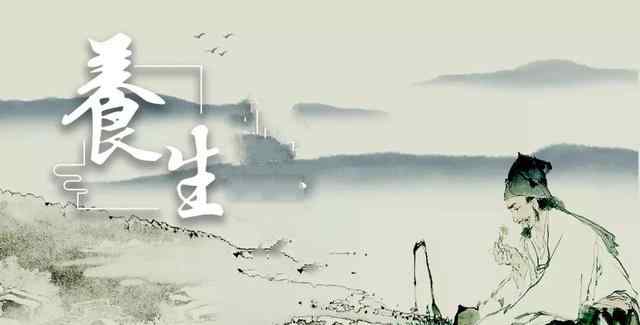
长生 Cháng Shēng – Long Life
Grain abstinence was a prerequisite for the practice of the Daoist Yangxing 养性 “nourishing the inner nature”. Nurturing the life principle consists in suppressing the causes of death and creating the immortal body to replace the mortal body. The causes of death are mainly the Qi of grain and the Qi of bloody food. One replaces the usual food with 气 Qi.
The breath is held as long as possible during inhalation without escaping, and while holding it, take a large bite and imagining that the Qi is swallowed like a gulp of water from the windpipe into the esophagus, so that it enters the stomach like normal food. The body, like all things, is composed of 气 Qi, but it is made of heavy kind of Qi, while the air is a light, subtle, and pure form of Qi. Ordinary food supplies the body with the Qi of the five tastes through digestion.
This is heavy impure Qi. On the other hand, the Qi nourishment from the breath replaces the heavy matter in the body with light, pure Qi, and when the transformation is complete, the body is immortal. Some versions of grain abstinence can lead to health problems. It is reported, this very heavy diet was not without painful moments.
Without grain and meat, those who practice it are malnourished, and the Taoist authors go on to report that in the beginning there were numerous problems and some of them suffered from dizziness, weakness, drowsiness, difficulty in moving, others got diarrhea, constipation, etc.
However they were persistent and insisted that after a few weeks these symptoms would go away and that the body would soon feel like it was before. Even better, more calm and lightness. They also advise beginning the practice gradually, and recommend a range of medications for the thirty to forty day period of transition and adjustment.
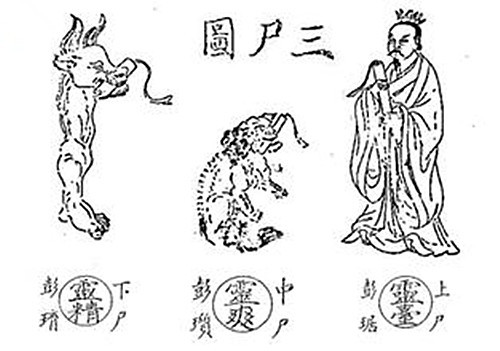
The Three Corpses and Nine Worms
Avoiding grain was the primary medicinal treatment for eliminating the San Shi 三尸 “Three Corpses” , sometimes referred to as San Chong 三虫 “Three Worms”. Spirits that live in human bodies and hasten death. Supernatural beings that seek the decay of the body in order to feed on it. If longevity is to be achieved, the “Three Corpses” must be starved, and the only way to do this is to avoid grain. Traditional Chinese medicine associates the mythological Three Corpses with the Jiu Chong
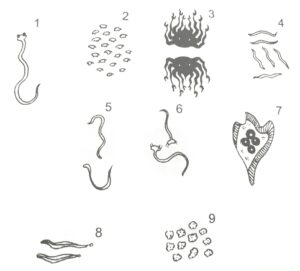
九虫 “Nine Worms”, which correspond to parasites such as roundworms or tapeworms, with symptoms causing a variety of weaknesses in the host’s body.
The three corpses enter the human body at birth and are located in the upper, middle and lower dantian “cinnabar field”, brain, heart and abdomen. After their host dies, they become ghosts and roam freely to steal offerings. These corpses seek to harm both their hosts and their fate. First, they weaken the physical energy centers of Dantian. Second, the three corpses are records of their host’s misdeeds, which ascend to heaven every two months on the 57th day of the 60 day cycle, the Gengshen 庚申. Reports from the Siming 司命 “Director of Destinies” state: “Misdeeds shorten lifespan”. In the 4th century, Huang Ting Jing 黄庭经 “Scripture of the Yellow Court” states: “Do not sleep day or night, and you will become immortal.”
Bi Gu, the abstinence from grain and grain products, atrophies the three corpses and is the basis for many Daoist dietary therapies, which can also exclude wine, meat, onion, and garlic. The Jīn jiǎn yù zì jīng 金简玉字经 “Classic of the Jade Gold Characters” states: “Those who eat neither grain, nor wine, nor meat, nor plants of the five strong aromas with their food, must bathe, wash their clothes, and burn incense”. Practicing Bi Gu alone cannot get rid of the three corpses, but one does get to a point where they can be killed with alchemical means, particularly cinnabar.
Three Corpses described
- Qīng Gǔ青古 “Old Blue” dwells in Upper Dantian, “It is he who makes people blind, or deaf, or bald, who makes teeth fall out and bad breath. “
- Bái Gū 白姑 “White Maiden” resides in Middle Dan Tian, ”She causes palpitations, asthma and melancholy.”
- Xue Shī 血尸 “Bloody Corpus” dwells in Lower Dantian “It is through him that the intestines twist painfully, the bones dry up, the skin cracks, the thighs get rheumatism”
These corpses also severely affect our emotions. Upper corpse sits in upper dantian, material desire. Middle corpse sits in middle dantian, craving for food. Lower corpse sits in lower dantian, sexual desire. The 9th-century 除三尸九虫保生经 Chú sān shī jiǔ chóng bǎo shēng jīng “Scripture of Expelling the Three Corpses and Nine Worms for the Protection of Life” describes:
- The upper corpse, Peng jū 彭琚, lives in the head. Symptoms include a feeling of heaviness in the head, blurred vision, numbness, and excessive flow of tears and mucus.
- The middle corpse, Peng Zan 彭瓒, resides in the heart and stomach. It attacks the heart and leaves its host yearning for sensual pleasures.
- The lower corpse, Peng jiǎo 彭矫, resides in the stomach and legs. It causes the ocean of pneuma… to run out and leaves its host lusting after women/men.
It has now been scientifically proven that certain parasites in the human body feed on the components of grain and sugar. These parasites are even capable of altering the host’s character and habits to suit the parasite’s preferences. Parasites such as flukes or Toxoplasma gondii, which is actually a parasite found in cats and small mammals, which creates a high level of risk-taking in humans, and mice infected with this parasite will almost voluntarily feed themselves to the cat, since the parasite makes the mouse believe that there is no danger.

守庚申 Shǒu gēng shēn
The three corpses ascend to heaven every 庚申 Gēng shēn day, approximately every two months on the 57th day of the 60 day cycle, to report the misdeeds of the host. To prevent the ascending and avoid punishment by heaven, Daoists use several methods on this day. There are methods to get rid of the three corpses, which is a long process where several medicines and chemicals are used.
The “太上除三尸九虫保生经 Tài shàng chú sān shī jiǔ chóng bǎoshēng jīng” shows several recipes to get rid of the three corpses, all include poisounous ingredients and the smallest mistake when making the medicine will lead to the death of the practitioner when taking the medicine. In the history of China there were many kings wishing to become immortal and died from trying these medicines.
Other methods to avoid the ascending of the three corpses to heaven are talisman, meditation and fasting practices. These methods are done on the Geng Shen Day and/or around these days.
Fasting includes the ingestion of different herbs and avoidance of several foods (listed below).
Talisman are used in combination with incantations and are a powerfull tool to practice
Laojun get rid of corpse and worm recipe:
Use Guanzhong to kill “Fu worms”, Baiquelu to kill “You worms”, Shu lacquer to kill white worms, Wuyi to kill meat worms, Leiwan to kill red worms, Silkworms to kill scorpionworms, Magnolia to kill lungworms, Langyazi to kill stomach worms, Stone silkworm kills dung beetles, nine herbs are made into water pills and light powder soup, five pills are taken daily, the effect will be seen in 30 days, and all diseases will be cured in 60 days.
Laojun’s Six Jia talisman:
Take ten pieces every ten days, to remove three corpses and nine worms, and to protect the essence of yang. Cinnabar ink is used for these talisman. Use Talisman together with the ingredients above to get best outcome.
六甲符 Liù jiǎ fú:
Daoist Diets & Fasting
When cultivating the Dao, depending on the school of practice, there are often restrictions on the consumption of meat, fish and hot and pungent vegetables. Hot and pungent vegetables are also called the 5 severe or the 5 pungent flavors. These arise from the abnormal qi of heaven and earth and are strong in taste. Its Qi is unhealthy and its consumption can affect the organs.
These are:
- Garlic: Affects the heart and excites the qi of fire. Excessive consumption affects the mind and one becomes disorganized.
- Onions: affect the kidneys and deplete the qi of the water. Excessive consumption leads to mood swings, discomfort leads to panic.
- Leek: Affects the liver and overcomes the qi of the wood. If the fire prevails in the liver, it is easy to irritate and emotions are affected.
- Spring onion: Affects the spleen and suppresses the earth’s qi. When the spleen and pancreas are irregular, feelings of anger and brooding build up.
- Asant / Hingu: Affects the lungs and hinders the qi of the metal. When the lungs are overworked and drained, one often falls into a pessimistic mental state.
The tastes of these foods are very strong and, after consumption, can trigger cravings in people. Excessive consumption can even be unhealthy for the body. Consumption of meat and fish can cause one to lose one’s nature, it creates sins through killing, one falls back into the infinite cycle of being born and striving. A Dao practitioner understands the virtue of heaven and honors life, encourages compassion, does not kill, avoids feelings of anger and the consequences of sin. These are the reasons why not to eat meat. But again, there are Daois schools where eating meat is allowed or specific meats are taboo.
The diet of a Daoist practicing internal alchemy is light, no strict tastes. Purity and clarity, calmness of the mind and harmony of the Qi, being free from diseases, it all comes naturally.
Inner practitioners and several Daoist schools see onions / spring onions, garlic, leeks, canola and coriander as the 5 strong tastes.
Daoists do not necessarily have to be completely vegetarian. Ordinary believers can consume meat that they have bought in the market, but they are not allowed to kill the animal, as this prevents the association with the Dao. The Daoist diet also depends on the practitioner’s individual circumstances and school they belong to.
If he / she lives a worldly life, it can often be difficult to eat only vegetarian. If one is sick and the body is weak, eating revitalizing foods is neccessary to heal. It is important not to be dogmatic about nutrition. One can consume the “3 clean meats”. This means 1. no bad thoughts about the butcher, 2. do not slaughter the meat yourself, 3. not being there at the slaughter. These are the “3 clean meats”. The Daoist doctrine advises a vegetarian diet, however, it does not necessarily dictate this in daily practice. Daily practice focuses primarily on the cultivation and purification of the body and mind, and in the course of cultivation one will also break away from meat and fish naturally.
Written and Translated by Daoist
Liu Cheng Yong, German Daoist Association.


 九虫 “Nine Worms”, which correspond to parasites such as roundworms or tapeworms, with symptoms causing a variety of weaknesses in the host’s body.
九虫 “Nine Worms”, which correspond to parasites such as roundworms or tapeworms, with symptoms causing a variety of weaknesses in the host’s body.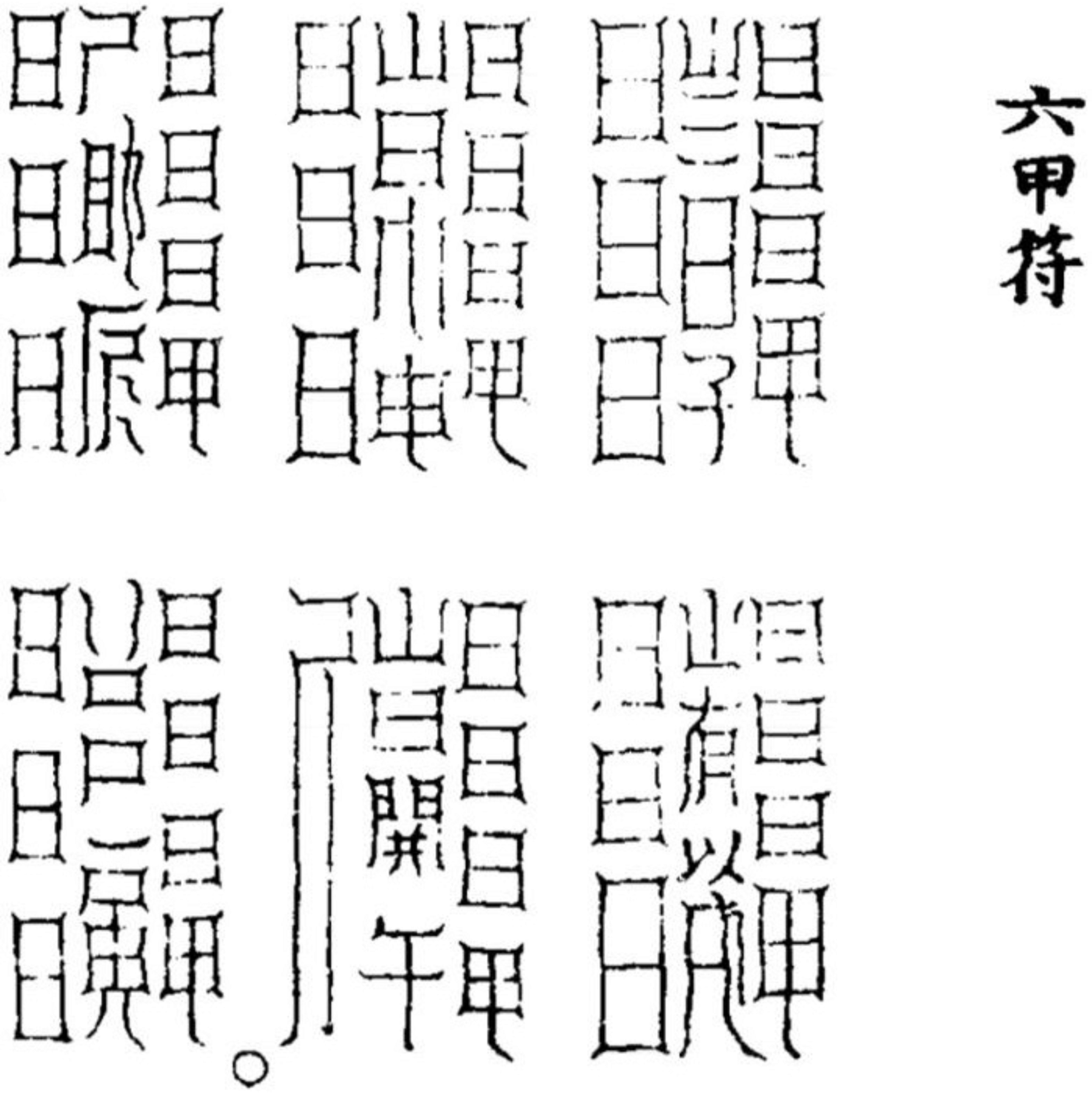
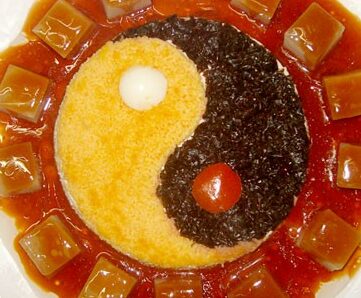
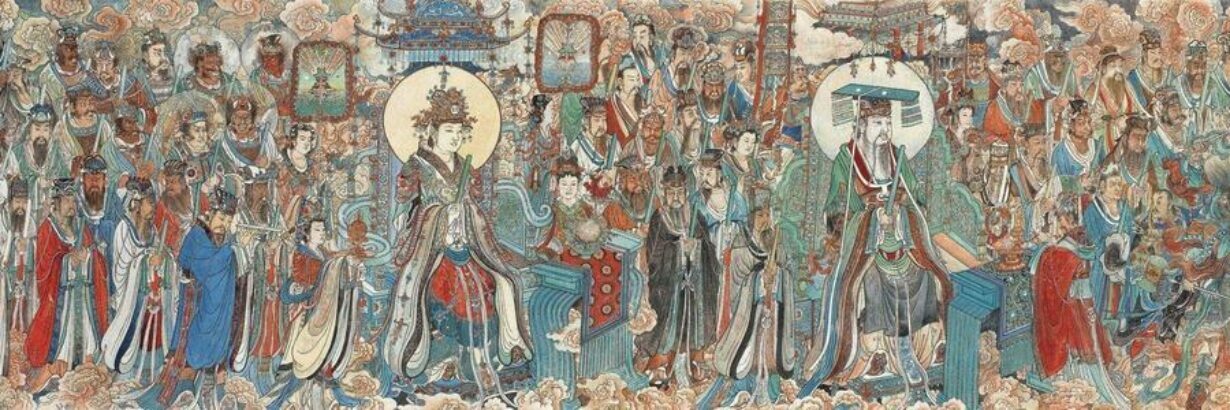
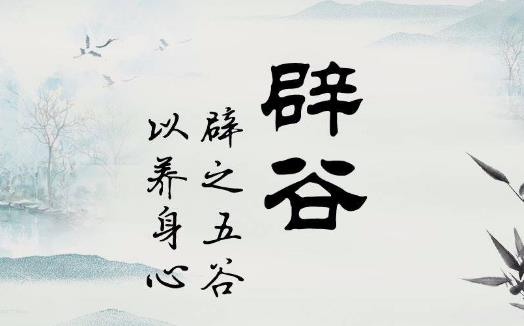

What would be a typical diet for daoist practitioners? Any recipes or list of ingredients to consume for health?
Depending on what you practice. A healthy diet is a general term. some practitioner focus their diet on roots and mushrooms without spices.
Do you guide ? Enlightenment?
Hi, Thank you for the amazing information you have provided. I have read the books of Juan Tzu and Lao Tzu and I try to follow the philosophy of Daoism. I recently learned about bi gu and want to read the book that describes the diet. Do you know which book I should read?